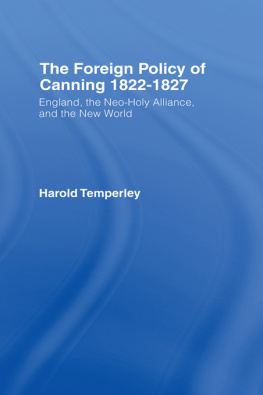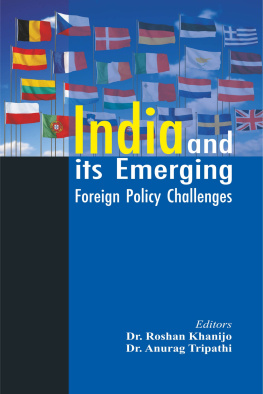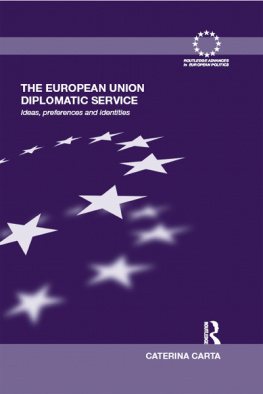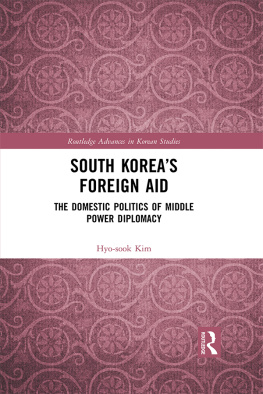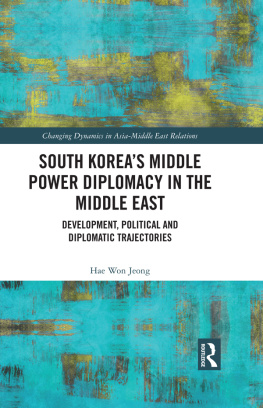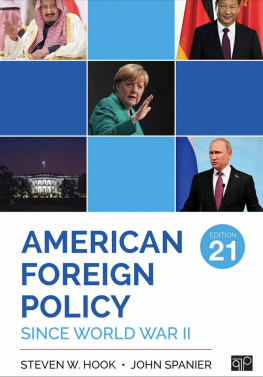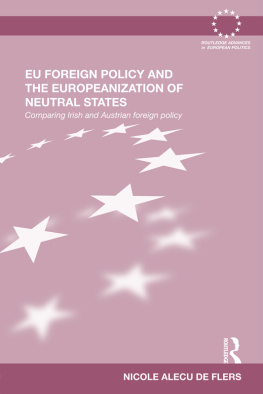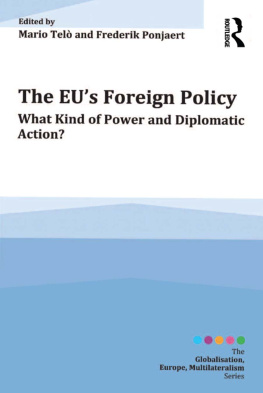Diplomatic Style and Foreign Policy
The book explores diplomatic style and its use as a means to provide analytical insight into a states foreign policy, with a specific focus on South Korea.
Diplomatic style attracts scant attention from scholars. It is dismissed as irrelevant in the context of diplomacys universalism; misconstrued as a component of foreign policy; alluded to perfunctorily amidst broader considerations of foreign policy; or wholly absented from discussions in which it should comprise an important component. In contrast to these views, practitioners maintain a faith-like confidence in diplomatic style. They assume it plays an important role in providing analytical insight, giving them advantage over scholars in the analysis of foreign policy. This book explores diplomatic style and its use as a means to provide analytical insight into foreign policy, using South Korea as a case study. It determines that style remains important to diplomatic practitioners, and provides analytical insight into a states foreign policy by highlighting phenomena of policy relevance, which narrows the range of information an analyst must cover. The book demonstrates how South Koreas diplomatic style which has a tendency towards emotionalism, and is affected by status, generational change, cosmopolitanism, and estrangement from international society can be a guide to understanding South Koreas contemporary foreign policy.
This book will be of much interest to students of diplomacy studies, foreign policy, Asian politics, and International Relations in general.
Jeffrey Robertson is Assistant Professor at Yonsei University, South Korea and a Visiting Fellow at the Asia-Pacific College of Diplomacy (APCD), the Coral Bell School of Asia Pacific Affairs, Australian National University (ANU).
Routledge New Diplomacy Studies
Series Editors:
Corneliu Bjola
University of Oxford
and
Markus Kornprobst
Diplomatic Academy of Vienna
This new series publishes theoretically challenging and empirically authoritative studies of the traditions, functions, paradigms and institutions of modern diplomacy. Taking a comparative approach, the New Diplomacy Studies series aims to advance research on international diplomacy, publishing innovative accounts of how old and new diplomats help steer international conduct between anarchy and hegemony, handle demands for international stability vs international justice, facilitate transitions between international orders, and address global governance challenges. Dedicated to the exchange of different scholarly perspectives, the series aims to be a forum for inter-paradigm and inter-disciplinary debates, and an opportunity for dialogue between scholars and practitioners.
Dismantling the Iraqi Nuclear Programme
The inspections of the International Atomic Energy Agency, 19911998
Gudrun Harrer
International Law, New Diplomacy and Counter-Terrorism
An interdisciplinary study of legitimacy
Steven J. Barela
Theory and Practice of Paradiplomacy
Subnational governments in international affairs
Alexander S. Kuznetsov
Digital Diplomacy
Theory and practice
Edited by Corneliu Bjola and Marcus Holmes
Chinese Public Diplomacy
The rise of the Confucius Institute
Falk Hartig
Diplomacy and Security Community-Building
EU crisis management in the Western Mediterranean
Niklas Bremberg
Diplomatic Cultures and International Politics
Translations, spaces and alternatives
Edited by Jason Dittmer and Fiona McConnell
Secret Diplomacy
Concepts, contexts and cases
Edited by Corneliu Bjola and Stuart Murray
Diplomatic Style and Foreign Policy
A case study of South Korea
Jeffrey Robertson
Diplomatic Style and Foreign Policy
A case study of South Korea
Jeffrey Robertson
First published 2016
by Routledge
2 Park Square, Milton Park, Abingdon, Oxon OX14 4RN
and by Routledge
711 Third Avenue, New York, NY 10017
Routledge is an imprint of the Taylor & Francis Group, an informa business
2016 Jeffrey Robertson
The right of Jeffrey Robertson to be identified as author of this work has been asserted by him in accordance with sections 77 and 78 of the Copyright, Designs and Patents Act 1988.
All rights reserved. No part of this book may be reprinted or reproduced or utilised in any form or by any electronic, mechanical, or other means, now known or hereafter invented, including photocopying and recording, or in any information storage or retrieval system, without permission in writing from the publishers.
Trademark notice: Product or corporate names may be trademarks or registered trademarks, and are used only for identification and explanation without intent to infringe.
British Library Cataloguing-in-Publication Data
A catalogue record for this book is available from the British Library
Library of Congress Cataloging-in-Publication Data
Names: Robertson, Jeffrey, author.
Title: Diplomatic style and foreign policy : a case study of South Korea / Jeffrey Robertson.
Description: New York, NY : Routledge, 2016. | Includes bibliographical references and index.
Identifiers: LCCN 2015046265 | ISBN 9781138188334 (hardback) | ISBN 9781315642437 (ebook)
Subjects: LCSH: Korea (South)Foreign relations administration. | Korea (South)Foreign relations.
Classification: LCC JZ1747 .R63 2016 | DDC 327.5195dc23
LC record available at http://lccn.loc.gov/2015046265
ISBN: 978-1-138-18833-4 (hbk)
ISBN: 978-1-315-64243-7 (ebk)
Typeset in Times New Roman
by Wearset Ltd, Boldon, Tyne and Wear
For Eunjung, Juno, and Tane.
Contents
My profound gratitude goes to Dr. Pauline Kerr and Professor William Maley, and the entire team at the Asia-Pacific College of Diplomacy (APCD) at the Coral Bell School of Asia-Pacific Affairs, Australian National University (ANU). My thanks also go to other colleagues at the ANU, including Dr. Andrei Lankov, Associate Professor Kim Hyung-A, Dr. Leonid Petrov, and Professor William Tow. Without their guidance, support and above all patience, the research leading to this book would never have been completed.
My profound gratitude also goes to colleagues at the Research Branch of the Parliamentary Library at the Parliament of Australia. In particular, Dr. Frank Frost, Dr. Ravi Tomar and Dr. Timothy Kendall, who unhesitatingly gave their time, encouragement, and frank advice.
My thanks also go to individuals, colleagues and friends at the Republic of Korea Ministry of Foreign Affairs (MOFA), the Institute for Foreign Affairs and National Security (IFANS), the Korea Institute for International Economic Policy (KIEP), the Korea Institute for National Unification (KINU), the Institute for National Security Strategy (INSS), the Institute for Far Eastern Studies (IFES), Kyungnam University, and the Australian Government Department of Foreign Affairs and Trade (DFAT), including those at the Australian Embassy, Seoul. The assistance I received in the early stages of my research from these colleagues helped guide, drive and sustain my later efforts.
Finally, my gratitude also goes to the entire team at Routledge. The Routledge



